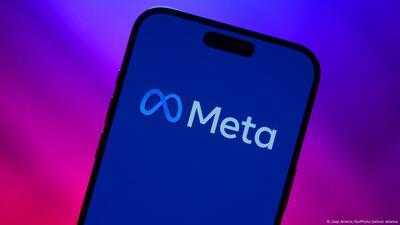

Social media giant Meta is facing trial in Washington over allegations it has monopolized social media platforms by buying up Instagram and WhatsApp. The lawsuit could remain open for years.An antitrust trial of US social media giant Meta began in a Washington federal court on Monday over allegations that the company bought the platforms Instagram and Whatsapp to illegally eliminate competition. The US Federal Trade Commission (FTC) wants Meta, which also owns Facebook, to reverse the acquisitions made more than a decade ago. However, with appeals likely from both sides, the trial is expected to drag on for years. How did Meta respond in court? In opening statements, FTC attorney Daniel Matheson said Meta had generated enormous profits even as consumer satisfaction has dropped. He added that Meta was "erecting a moat" to protect its interests by buying Instagram and Whatsapp because the company feared they were a threat to the social media giant's market dominance. "We're going to give them their chance to tell their side of the story," Matheson said. Meta chief Mark Zuckerberg spent most of Monday afternoon in court answering questions from Matheson. The company's attorney, Mark Hansen said the FTC was making a "grab bag" of arguments that were incorrect. Hansen said Meta has plenty of competition and has also improved the output of both Instagram and Whatsapp since acquiring the two startups. "This lawsuit, in summary, is misguided," Hansen said, adding: "anyway you look at it, consumers have been the big winners." What are the allegations? The lawsuit was filed against Meta, which was then called Facebook, in 2020, during Trump's first term. The US government, through the antitrust watchdog of the FTC, has alleged the company abused its market power to acquire Instagram and WhatsApp before they could become competitors. Meta bought Instagram in 2012 for around $1 billion (€880 million) and WhatsApp in 2014 for around $22 billion. The FTC approved the acquisitions at the time. Zuckerberg's relation with Trump Zuckerberg had hoped that President Donald Trump may get the case dropped as he pursues what is largely a pro-business agenda that has mostly seemed friendly to Big Tech. Ahead of the trial, Zuckerberg sought to use other means to persuade Trump to choose a settlement rather than fight the case, among other things contributing to the president's inauguration fund and loosening policies on content moderation. Meta also agreed in January to pay Trump $25 million to settle a 2021 lawsuit he filed claiming he wrongfully had his accounts suspended by Facebook and Instagram after the US Capitol riot. The trial is being presided over by Judge James Boasberg, who is also presiding over the high-profile case involving federal government orders to deport Venezuelans using a wartime law. He ruled in 2021 that the lawsuit against Meta was "legally insufficient," but the FTC has managed this time to push its case to court. What is Meta's expected defense? Meta has rejected the accusations and argued that other platforms such as TikTok, owned by Chinese internet company ByteDance, are providing adequate competition on the market. Meta's defense lawyers are expected to say at the trial that it was only substantial investments by the company that turned the two acquisitions into the huge revenue drivers they are today, with Instagram, for example, still a small-scale photo-sharing app when it was purchased. They will also stress that Meta's apps are free for users. Zuckerberg, the world's third-richest man, has also bought a multi-million-dollar mansion in the US capital, a move seen as an attempt to stay close to the center of political decision-making. Edited by: Alex Berry